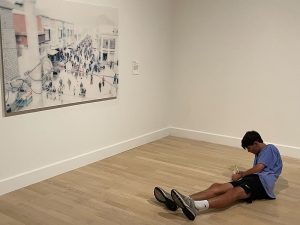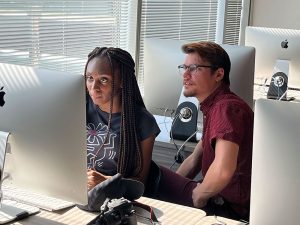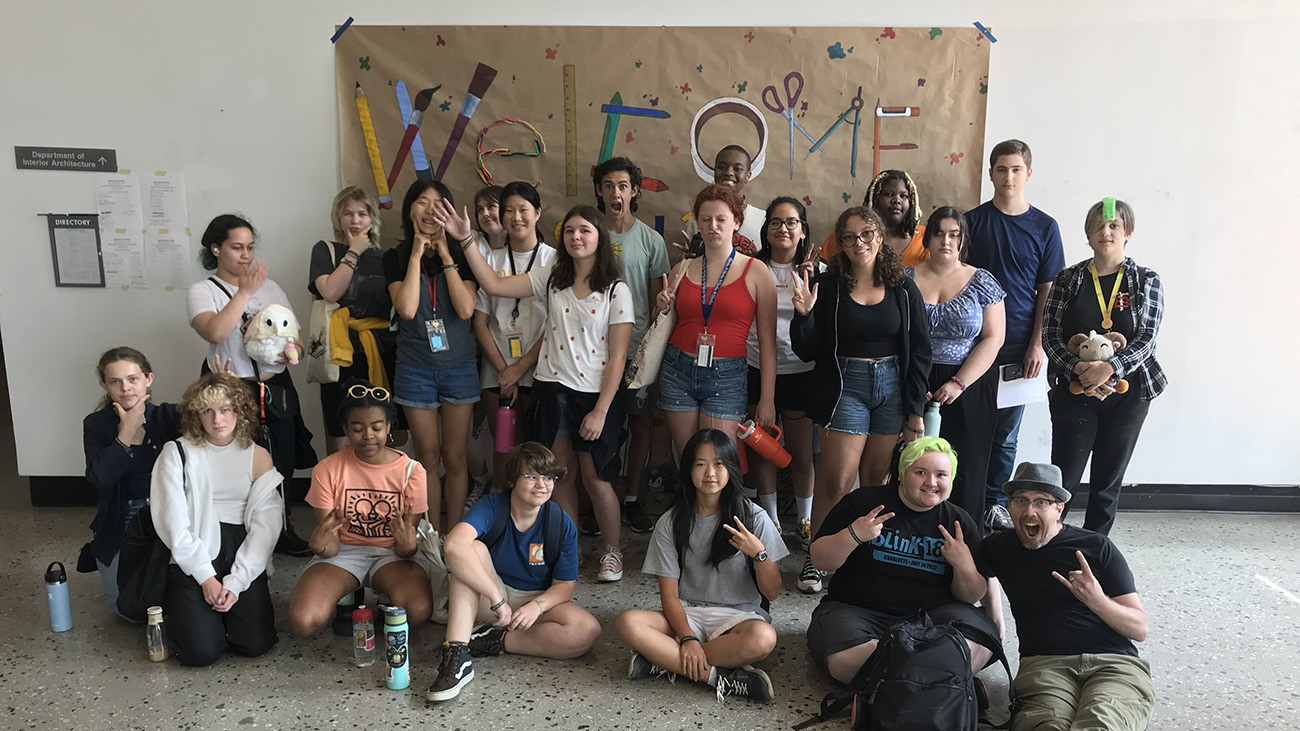
Safety
During the SADI camp, UNCG art education pre-service teachers work as camp counselors providing close supervision and assistance to help the students throughout the daily instructional schedules and art enrichment activities.
At the UNCG Summer Arts and Design Intensive program, students will experience self-motivated artistic journeys to expand their creativity, critical thinking, and problem-solving skills. Under the exceptional leadership and guidance from the artist-faculty of the School of Art and Art Education NC Professional Teaching Licensure Program, students will grow as potential artists and critical visual consumers. Each studio class offers limited seats to provide intensive and high quilty instruction.
In the case of the residential program staying in the UNCG residence halls, all students will be under the supervision of our professional staff. Experienced camp counselors will be assigned to groups of students during the week and closely support campus life aspects.
Health Care
In the event of an illness or injury to a student at camp, a SADI nursing staff will provide prompt evaluation and first aid. If your child is injured at camp, we will contact the parents to discuss our plan of treatment. Should your child require the attention of a physician, we will take him or her to a nearby Urgent Care facility. In the unlikely event that a student would need hospitalization, we will arrange for immediate transportation. Costs resulting from prescription medication, x-rays, or lab work are the responsibility of the parent. Costs resulting from hospital or Urgent Care treatment are the responsibility of the parent. We have included a Medical History & Permission for Treatment Form for you to complete. This form does not require a physical examination nor does it require anything from your physician, since the UNCG Summer Arts and Design Internsive is non-strenuous. Be certain, however, that a parent signs the Permission for Treatment portion of the Health Form. Also, be sure to include your Medical Insurance Policy information on Health Form should your child require treatment, x-rays, etc., beyond the routine care provided by the UNCG SADI nursing staff.
Bring this completed form with you to the registration table on Sunday.
Download the Medical History and Permission FormCamp Policies
- Cell Phone Policy
For a variety of reasons students may have cell phones but they must be turned off and put away during studio classes and enrichment events, this means cell phones can only be out during lunch and when waiting to be picked up. Cell phones can cause distractions, which cause accidents (which we would like to avoid). We want the students to get the maximum learning experience without a distraction. - Music Policy
Music while working on artwork will be up to each instructor to decide. - Bullying Policy
Bullying is when one or more people exclude, tease, taunt, gossip, hit, kick, or put down another person with the intent to hurt them. Bullying happens when a person or group of people try to exercise power over another person and use this power to get their way at someone else’s expense. Bullying is hurtful regardless of what form it takes. In extreme cases, it can escalate until people are physically harmed. A student may be expelled from the program without a refund for any disrupting behavior that endangers or detracts from the positive art experience of other students. Our staff takes all instances of bullying seriously. We train our staff to promote good communication between students and staff so that everyone is comfortable alerting us about bullying. - Cyberbullying is bullying that takes place over digital devices like cell phones, computers, and tablets. Cyberbullying can occur through SMS, Text, and apps, or online in social media, forums, or gaming where people can view, participate in, or share content. Cyberbullying includes sending, posting, or sharing negative, harmful, false, or mean content about someone else. It can include sharing personal or private information about someone else, causing embarrassment or humiliation. Some cyberbullying crosses the line into unlawful or criminal behavior.
The most common places where cyberbullying occurs are:
-
- Social Media, such as Facebook, Instagram, Snapchat, and Tik Tok
- Text messaging and messaging apps on mobile or tablet devices
- Instant messaging, direct messaging, and online chatting over the internet
- Online forums, chat rooms, and message boards, such as Reddit
- Online gaming communities
You can find more information about cyberbullying in the link below:
What Is Cyberbullying – https://www.stopbullying.gov/cyberbullying/what-is-it
 |
 |
 |
 |
